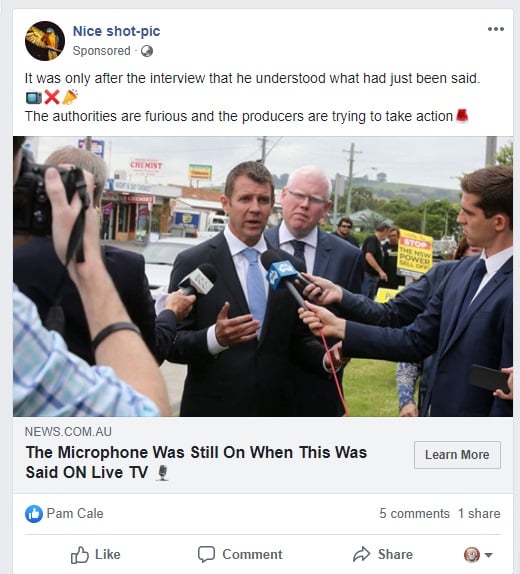- The mining billionaire’s photo has been used by scammers in social media ads for cyptocurrencies
- Forrest is one of several high-profile Australians the scammers falsely claim back crypto schemes that cost those who’ve believed the ads millions of dollars
- Facebook says its doing its best to combat the fake ads
- Forrest wants governments around the world to intervene against Facebook
Andrew ‘Twiggy’ Forrest has ripped into Facebook boss Mark Zuckerberg for scam ads on the social media site that use mining billionaire’s photo in an attempt to fool people into cryptocurrency investments.
In a scathing letter sent to the Facebook founder and CEO on the weekend and obtained by The Australian, Forrest accuses Zuckerberg of “socially reprehensible recalcitrance” in failing to prevent the scam ads from appearing on the site and profiting from them while the people lose money after being tricked into believing the ads.
Forrest told The Australian Facebook was “one of the world’s most pernicious publishers”.
The Fortescue Metals Group founder and chairman, worth more than $10 billion, is calling on governments globally “to update their regulatory and legislative frameworks to ensure society is protected from the harm Facebook facilitates by allowing scammers to advertise on its platform”.
Forrest said Facebook was being “embarrassingly exploited” while also profiting from the scam.
The images of several prominent Australians have featured in the scam ads, which have also appeared on LinkedIn and other social media sites.
Startup Daily has reported last week on former NSW Premier Mike Baird, now a senior NAB executive, being enlisted in the scam ads alongside The Project’s Waleed Aly. The ads feature purported links that are faked to mainstream media sites such as News.com.au and The Huffington Post.
A Facebook spokesperson told Startup Daily that the company is currently testing a new system, launched last week in the UK, Australia and New Zealand exploring how to gather input from people through its external misleading and scam ads reporting form.
“We do not allow these scams on our services and we take swift action to remove them as soon as we become aware,” they said.
“These scammers use sophisticated cloaking technology to mask content so that it shows different versions to our ad review systems than it does to people. This is a clear violation of our policies as ads must not use tactics intended to circumvent our ad review process or other enforcement systems.”
They added that the problem was “not unique to Facebook” and the company now more than 35,000 people working on safety and security, with the company’s security budget now bigger that its revenue when the company listed in 2012.
“We’ve also built additional detection models, specifically for celeb-bait, that automatically incorporate what we have learned about the changing tactics used in ads to help us improve,” they said.
More than 70 variations on the Baird ads were believed to be in circulation and even after it was reported to Facebook and the company said it was removing them, additional versions were seen in Startup Daily’s feed as recently as last Friday.
 Daily’s
Daily’s
Earlier this year Sunrise host David Koch, chairman of Pinstripe Media, publishers of Startup Daily, described the people responsible for the scam ads as “digital cockroaches”, saying he’d heard from a 30-year-old who lost $10,000 after investing in a Bitcoin fund after the scammers faked an endorsement from Koch.
“I constantly report these scams to Facebook, but as soon as they are taken down the scams come back on a different server,” he said.
Others used in the fake bitcoin ads include James Packer, while Eddie McGuire’s image was used in ads for erectile dysfunction last year, leading the TV host and Collingwood AFL club present to engage his lawyers, whose arguments were similar to Forrest’s pointing out that Facebook’s own advertising policy said it “reviews sponsored material”, but “despite this, Facebook never seems to do any checking”.
Andrew Forrest’s letter says it’s “not good enough” for Facebook to rely on users to report scam ads.
“Take responsibility, work harder to recognise these scams and like every other advertising medium, check the facts before publication,” he wrote.




















Trending
Daily startup news and insights, delivered to your inbox.